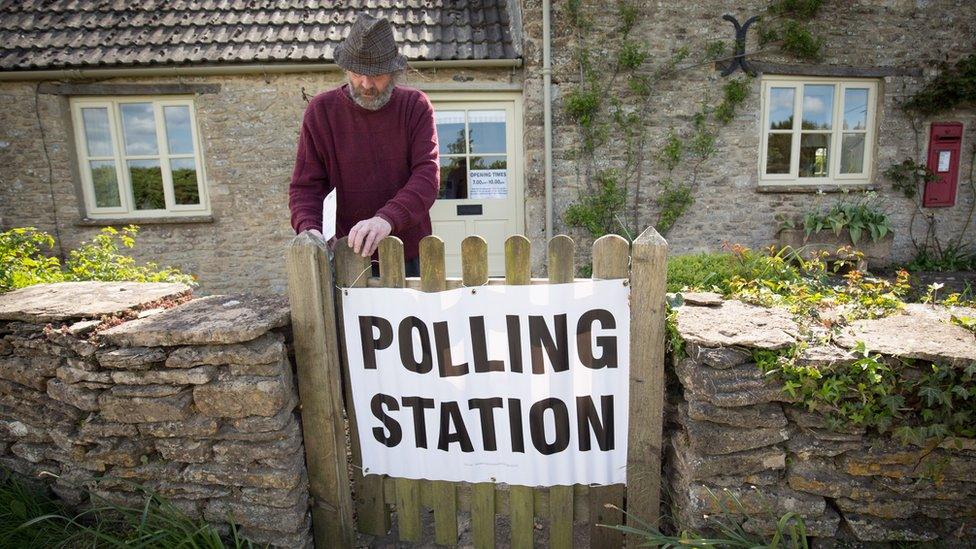Key points of 2016 elections: At-a-glance summary
- Published
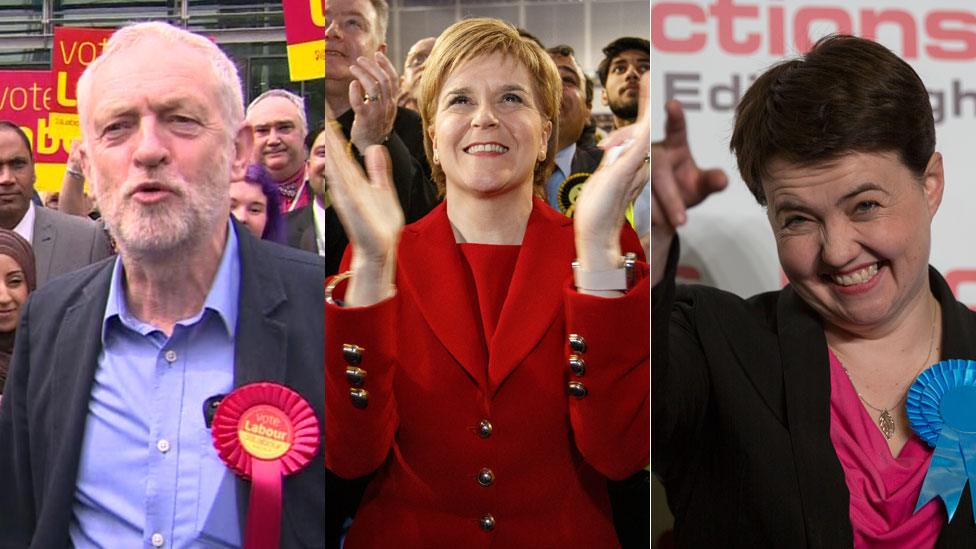
The votes are still being counted in UK-wide elections, the single biggest test of political opinion until the 2020 general election.
Key points
SNP celebrate victory in Scotland but fall short of a majority
Scottish Conservatives push Labour into third place
Labour remains the largest party in Welsh Assembly but falls short of majority
Labour's Sadiq Khan is elected Mayor of London beating Conservative Zac Goldsmith by 13.6%
Mixed night for Labour in English council elections - the party retained control of councils but lost 18 seats
BBC projected national vote share (if the results were repeated at a general election): Lab 31%, Con 30%, Lib Dem 15%, UKIP 12%
Labour retains two seats in Westminster by-elections - Ogmore and Sheffield Brightside
Jeremy Corbyn said Labour had defied expectations and "hung on"
Labour remains the largest party in the London Assembly
The Democratic Unionist Party (DUP) and Sinn Féin remain the two biggest parties in the Northern Ireland Assembly
UKIP wins seven seats in the Welsh Assembly, including one for former Tory MP Neil Hamilton, and two seats on the London Assembly
Kirsty Williams quits as Welsh Lib Dem leader after her party loses all but one of its seats
Labour's Marvin Rees wins the Bristol mayoral election by a margin of almost 30,000 votes
Labour's Joe Anderson retains Mayoralty in Liverpool, Labour candidate Paul Dennett is new Mayor of Salford
Tap here, external to search for election results in your area.

Around the UK
Scotland: SNP 63, Conservative 31, Labour 24, Greens 6, Lib Dem 5
The SNP is claiming a "historic victory" but it did not win enough seats to form a majority government. The Conservatives, in a move that would been unthinkable in the past, pushed Labour into third place in Scotland, with leader Ruth Davidson winning her seat from the SNP. The Greens overtook the Lib Dems.
Full results from the Scottish Parliament elections, external
Wales: Labour 29, Plaid Cymru 12, Conservatives 11, UKIP 7, Lib Dems 1
UKIP had a good night and have won their first assembly seats, getting 12.5% of votes. Plaid Cymru leader Leanne Wood picked up a key seat from Labour, who remain the largest party but have just missed out on a majority.
Full results from the Welsh Assembly elections
England: Labour 58 councils won, Conservatives 38, Lib Dems 4
Labour had a mixed night in council elections, holding on to some key authorities that it had been expected to lose but facing criticism that it had not done well enough to suggest victory in the 2020 general election. With all 124 council results in, Labour was down 18 councillors on the last time these seats were contested, in 2012. The Conservatives were down 48 councillors on 2012 while the Lib Dems - who won control of one council, Watford - and UKIP had gained 45 and 25 councillors respectively. The Greens are down three.
Full results the latest English councils, external results
Police and crime commissioners in England and Wales: Party candidates swept aside most of the independents that took control of police areas in the first PCC elections four years ago. The number of independents went down from 12 to three, with the Conservatives going from 16 to 20 PCCs. Labour increased its number of PCCs from 12 to 15. Plaid Cymru was the only other party to get a look-in, with two PCCs, although UKIP ran the Conservatives a close second in a couple of areas. Turnout was up by more than 20% up on 2012, when it was among the lowest for any elections ever held. It was lowest in areas where local elections were not being held.
Northern Ireland: Democratic Unionist Party (DUP) has 38 seats, Sinn Féin 28, Ulster Unionists 16, SDLP 12 and the Alliance Party eight. First minister and DUP leader Arlene Foster topped the poll in Fermanagh and South Tyrone. The Greens and People Before Profit Alliance have two seats each. The TUV leader Jim Allister remains its sole representative. In South Down, John McCallister became the first high-profile MLA to lose his seat.
Full results from Northern Ireland
London: Sadiq Khan has been elected the new Mayor of London, beating Conservative Zac Goldsmith by 1,310,143 votes to 994,614. Labour remains largest party on the London Assembly.
Follow the latest results from London

What they said
"We have tonight made history," Nicola Sturgeon, on the SNP winning a third consecutive Scottish Parliament election
"All across England last night we were getting predictions that we were going to lose councils. We didn't," Labour leader Jeremy Corbyn
"Local election day for sitting prime ministers is supposed to be a day of dread... that wasn't what it was like last night," Prime Minister David Cameron
"I would have liked to see Labour do a lot better than this, because for me, my focus is on winning that general election and kicking the Tories out in 2020," former shadow chancellor Chris Leslie
"The SNP must now let Scotland move on. There has been a material change," Scottish Conservative leader Ruth Davidson
"A new dawn has already broken over the Valleys, people have voted for change," Plaid Cymru leader Leanne Wood
"Scotland has not been a success for us, but Wales is a big success," UKIP leader Nigel Farage
"My burning ambition for our city, that will guide my mayoralty, is to ensure that all Londoners get the opportunities that my city gave to me," London Mayor Sadiq Khan

Analysis - By Laura Kuenssberg, BBC political editor
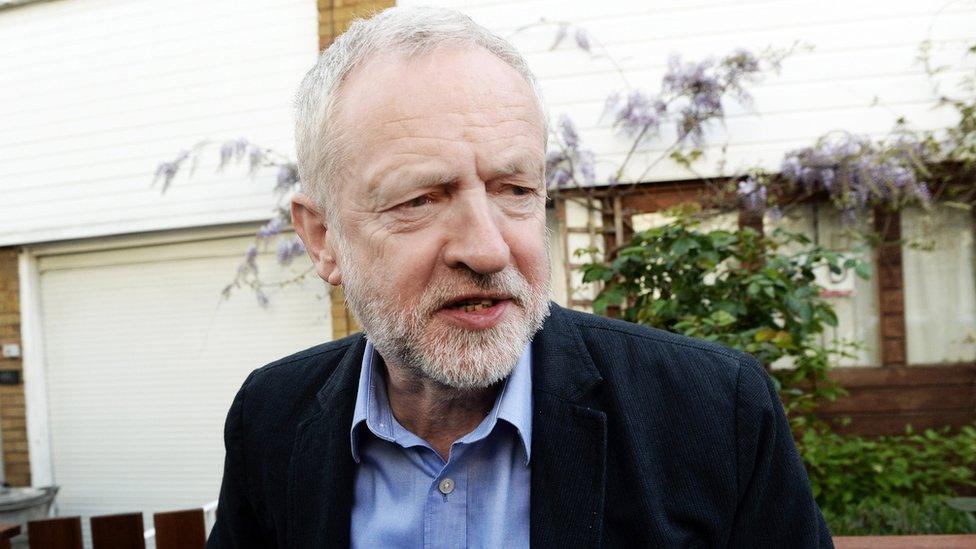
Jeremy Corbyn's party has swerved universal disaster - losses so far in England are fewer than some had feared. But with meltdown in Scotland, and losses where there should traditionally be gains, Labour would be foolish to take much comfort from the results.
There is little to suggest that voters believe the Labour Party on its current performance is on its way to a general election victory. Mr Corbyn's internal enemies are not likely to wield the knife, but there are already calls for more decisive leadership, more appeals to go to the centre ground.

In video
David Cameron: 'Labour has lost touch with people'
Jeremy Corbyn said Labour "hung on" and "grew support in a lot of places” across England.
Plaid Cymru leader Leanne Wood has taken the Rhondda constituency from Labour government minister Leighton Andrews
Nicola Sturgeon: 'We have tonight made history'
Norman Lamb says there are "green shoots after a near fatal knockout blow last year"
UKIP's leader said his party was "making breakthroughs in Wales".
Gill Furniss, widow of Harry Harpham, wins Sheffield seat
"My name is Sadiq Khan and I'm the mayor of London" - London mayor inauguration

In pictures
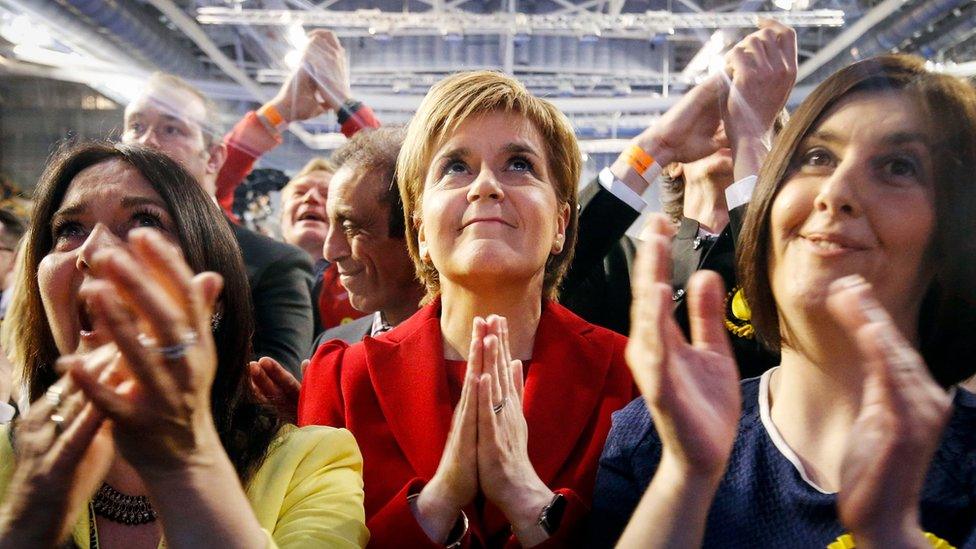
SNP leader Nicola Sturgeon hailed a "historic victory" but her party did not win a majority
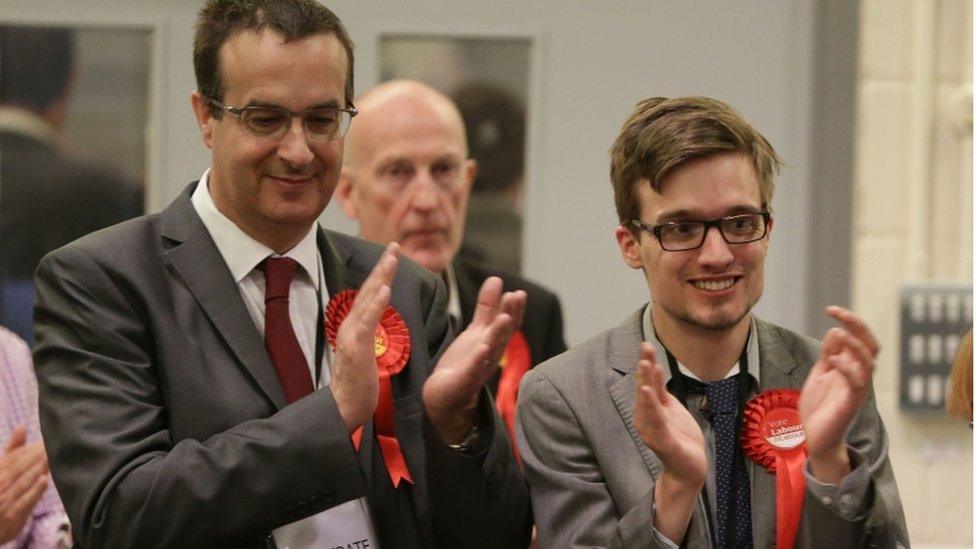
Labour has held several councils in England it was thought it might lose
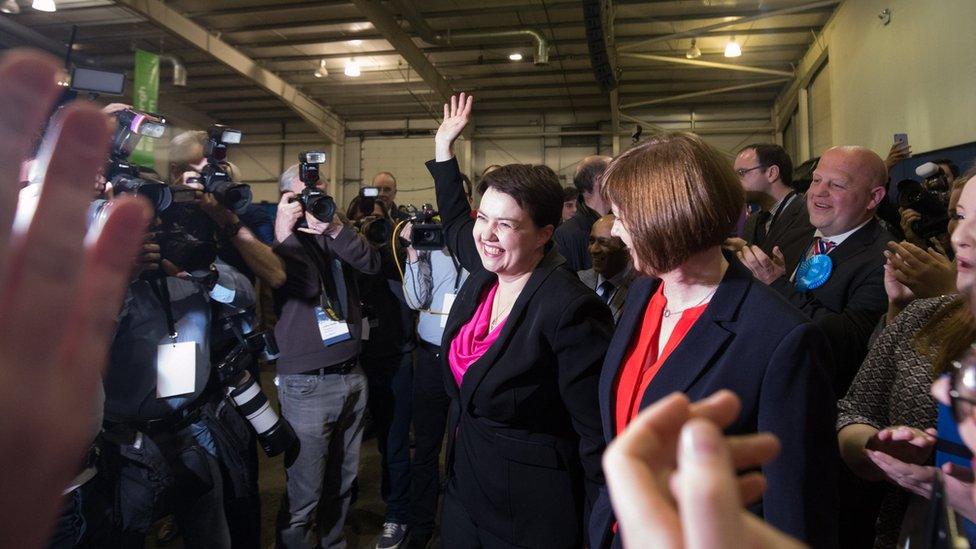
Scottish Tory leader Ruth Davidson won her seat from the SNP
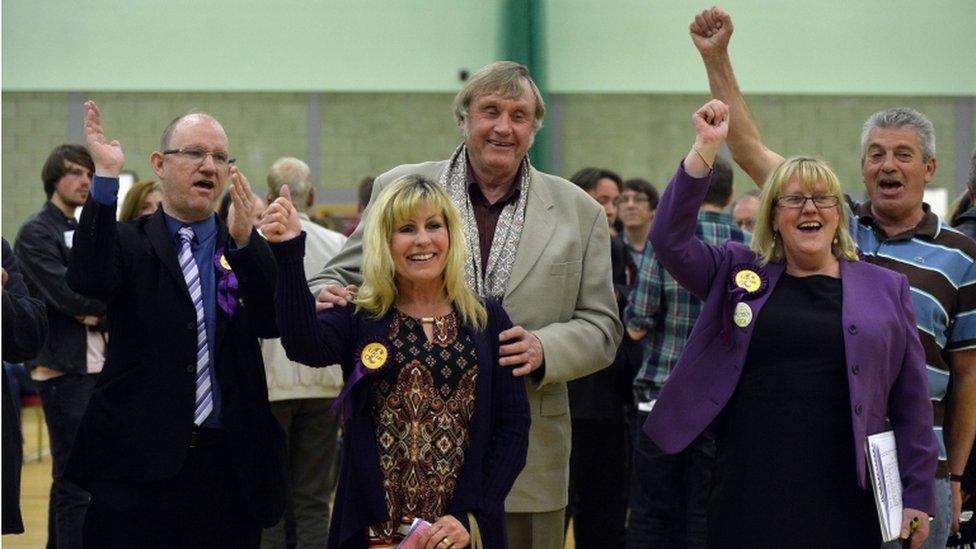
UKIP were celebrating winning a seat in Basildon
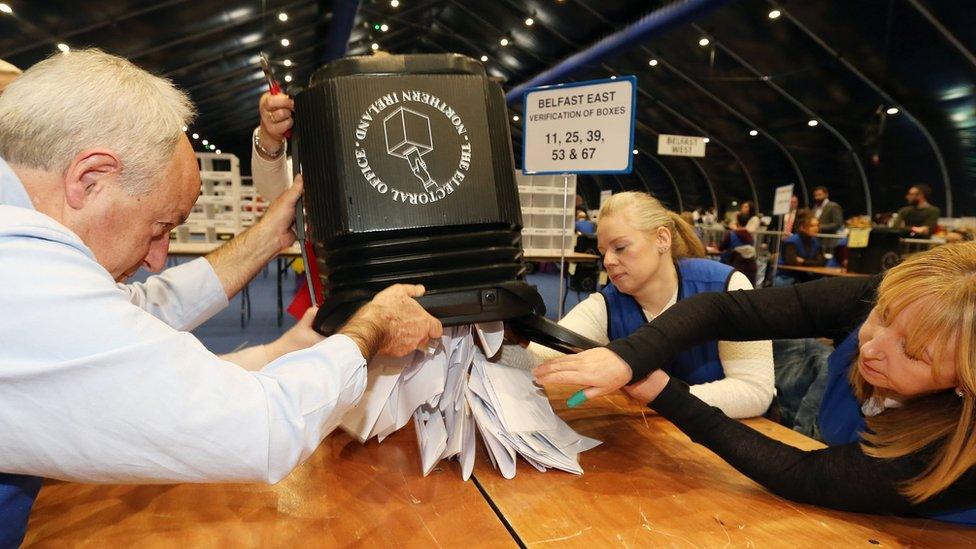
Results for Northern Ireland being counted
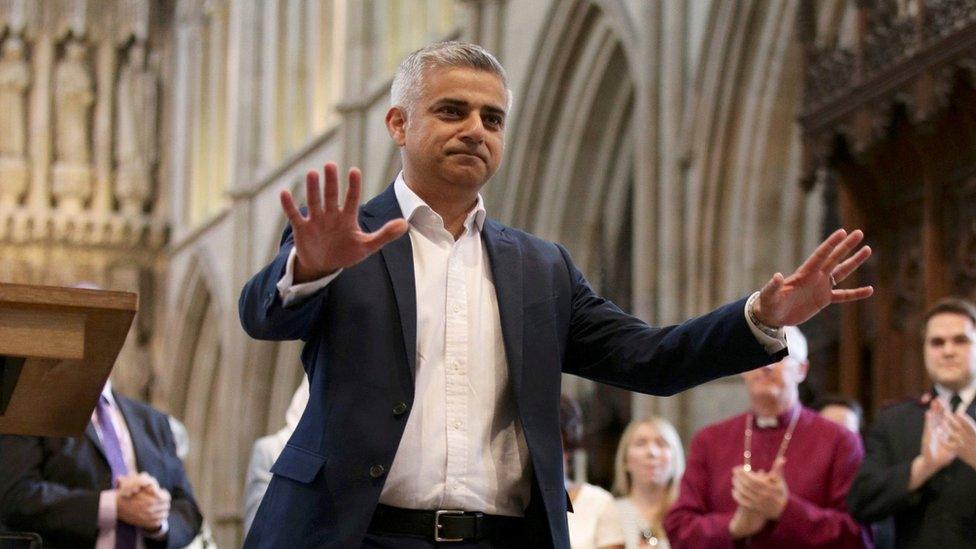
Sadiq Khan is sworn in as the new mayor of London
- Published5 May 2016
